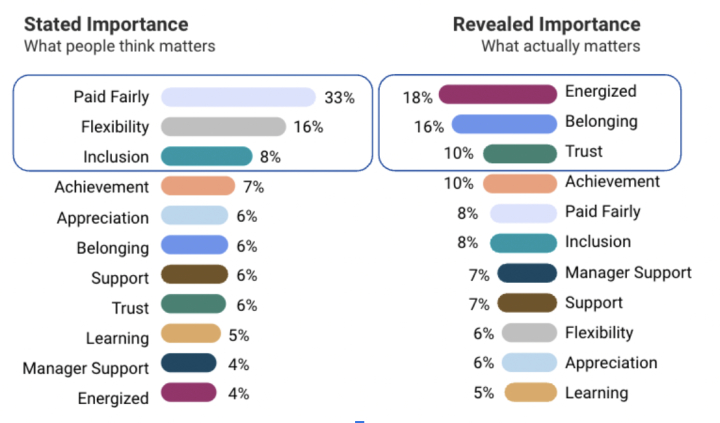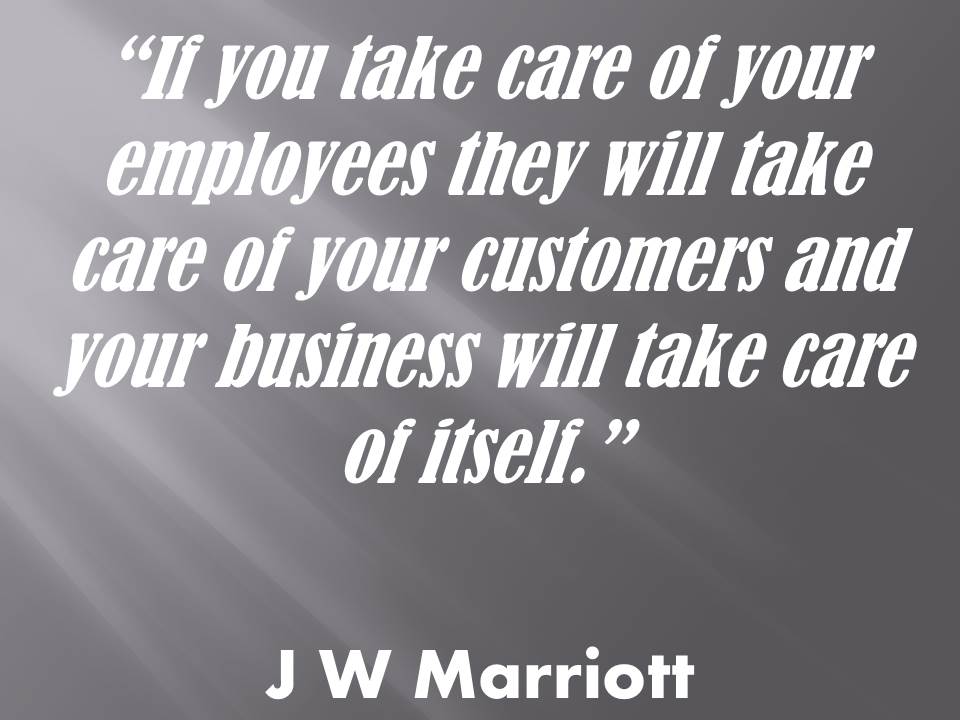
Does the mindset and overall well being of your employees really make a difference to the success or failure of your company? The answer these days seems to be a resounding yes. The long term performance of your business is directly related to how your employees are treated. Some new research from Indeed and Forrester indicates that the culture and well being of your team is what sets apart those companies that thrive and those that languish. The following is taken directly from that published data:
- Over the past three years, Indeed has teamed up with Forrester to monitor perceptions around wellbeing in the workplace and its impact on individuals, businesses and society. This year’s research¹ indicates that expectations around wellbeing at work continue to increase especially among younger generations, while perceptions of who is responsible for creating happiness in the workplace are shifting.
- We tend to be wrong about what we think will increase our work wellbeing. We overestimate fair pay and flexibility as the top factors that will contribute to our workplace wellbeing, and while both are foundational needs, feeling energized and a sense of belonging continue to be the top drivers.

- Perceptions of who is responsible for creating happiness and wellbeing in the workplace are shifting and expectations are increasing. 57% say their employer is responsible for an individual’s happiness at work but 50% believe that their company isn’t doing all it can to improve employee wellbeing and happiness at work.
- Workplace wellbeing impacts individual wellbeing. Nearly all (86%) of people surveyed stated that happiness at work affects their mood at home and a majority agree it affects their self-confidence, quality of life, career trajectory, etc.
- 90% of people believe that how they feel at work matters and nearly all (96%) of respondents believe it’s possible to be “happy at work, most of the time.” Compared to last year, however, fewer people are happy at work most of the time.

- When it comes to the factors that we think will increase our workplace wellbeing vs. those that actually do our survey found the following: Fair pay and flexibility are considered “table stakes” or foundational needs for optimal workplace wellbeing, but are often overstated and not enough by themselves to ensure workplace wellbeing. Feeling energized by work tasks and feeling a sense of belonging in a company continue to be the top drivers of wellbeing at work.
- While most employees agree that their wellbeing is tied to the success of their business, our research indicates that fewer agree their companies are prioritizing it over profit.
- 50% of people believe that their company isn’t doing all it can to improve employee wellbeing and happiness at work
- 46% of US workers say their expectations around happiness in the workplace increased just in the last year
- 61% of US employees believe that in ten years, workers will not settle for companies that do not prioritize their happiness and wellbeing.
-Written by Kevin Sawyer

